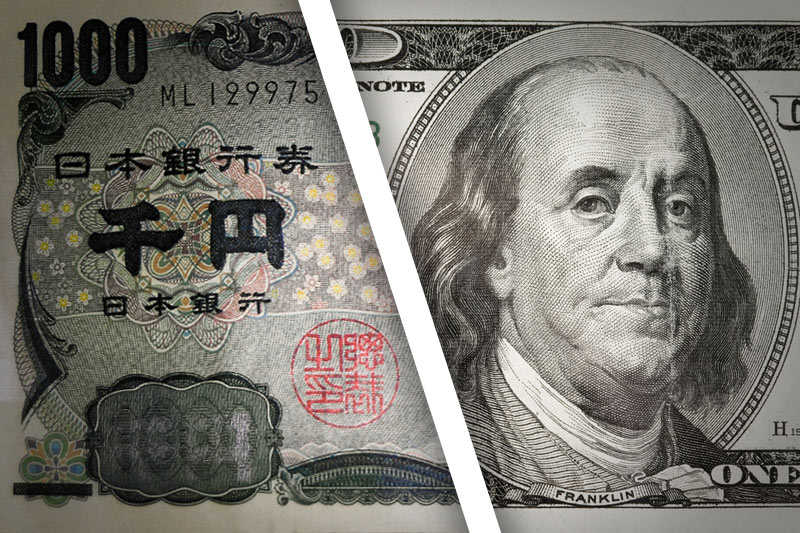Investing.com - The dollar softened against the yen on Monday after investors concluded monetary policy will remain loose in the U.S., especially with former U.S. Treasury Secretary Larry Summers announcing he is no longer interested in replacing Ben Bernanke as head of the Federal Reserve.
Summers was seen as more hawkish over other frontrunners including current Fed Vice Chair Janet Yellen, whom markets feel will keep policy loose to prioritize job creation over keeping inflation tightly nestled within comfort zones.
In U.S. trading on Monday, USD/JPY was trading at 99.10, down 0.26%, up from a session low of 98.50 and off a high of 99.16.
The pair was likely to find support at 98.50, the earlier low, and resistance at 99.97, Friday's high.
Summers, viewed by many as President Barack Obama's first choice as head of the Federal Reserve, bowed out of the race over the weekend, and was perceived as more eager to wind down dollar-weakening economic stimulus measures than Yellen.
On Tuesday, the Fed will open a two-day monetary policy meeting, with many avoiding the dollar on uncertainty as to whether the U.S. central bank will announce plans to begin tapering its USD85 billion monthly bond-buying program, which weakens the dollar by driving down interest rates to spur recovery.
Elsewhere, the Federal Reserve Bank of New York reported earlier that its Empire State manufacturing index fell to a four-month low of 6.29 in September from 8.24 in August, defying analysts' calls for the index to rise to 9.20.
The number weakened the dollar by fueling sentiments that any Fed plan to taper its asset-purchasing program will be very light and gradual, which should keep the greenback soft for the foreseeable future.
Separately, the Federal Reserve reported that U.S. industrial production advanced 0.4% in August after having been unchanged in July, in line with expectations.
The dollar continued to come under pressure after Friday data revealed that the Thomson Reuters/University of Michigan preliminary U.S. consumer sentiment index fell to a six-month low of 76.8 in September from 82.1 in August, worse than expectations for a decline to 82.0.
Also on Friday, official data showed that U.S. retail sales rose 0.2% in August, missing expectations for a 0.4% rise.
Core retail sales, excluding automobiles, rose 0.1% last month, short of expectations for a 0.3% gain.
The yen, meanwhile, was up against the pound and down against the euro, with GBP/JPY down 0.08% and trading at 157.63 and EUR/JPY trading up 0.07% at 132.20.
On Tuesday, the U.S. is to release data on consumer price inflation.
Summers was seen as more hawkish over other frontrunners including current Fed Vice Chair Janet Yellen, whom markets feel will keep policy loose to prioritize job creation over keeping inflation tightly nestled within comfort zones.
In U.S. trading on Monday, USD/JPY was trading at 99.10, down 0.26%, up from a session low of 98.50 and off a high of 99.16.
The pair was likely to find support at 98.50, the earlier low, and resistance at 99.97, Friday's high.
Summers, viewed by many as President Barack Obama's first choice as head of the Federal Reserve, bowed out of the race over the weekend, and was perceived as more eager to wind down dollar-weakening economic stimulus measures than Yellen.
On Tuesday, the Fed will open a two-day monetary policy meeting, with many avoiding the dollar on uncertainty as to whether the U.S. central bank will announce plans to begin tapering its USD85 billion monthly bond-buying program, which weakens the dollar by driving down interest rates to spur recovery.
Elsewhere, the Federal Reserve Bank of New York reported earlier that its Empire State manufacturing index fell to a four-month low of 6.29 in September from 8.24 in August, defying analysts' calls for the index to rise to 9.20.
The number weakened the dollar by fueling sentiments that any Fed plan to taper its asset-purchasing program will be very light and gradual, which should keep the greenback soft for the foreseeable future.
Separately, the Federal Reserve reported that U.S. industrial production advanced 0.4% in August after having been unchanged in July, in line with expectations.
The dollar continued to come under pressure after Friday data revealed that the Thomson Reuters/University of Michigan preliminary U.S. consumer sentiment index fell to a six-month low of 76.8 in September from 82.1 in August, worse than expectations for a decline to 82.0.
Also on Friday, official data showed that U.S. retail sales rose 0.2% in August, missing expectations for a 0.4% rise.
Core retail sales, excluding automobiles, rose 0.1% last month, short of expectations for a 0.3% gain.
The yen, meanwhile, was up against the pound and down against the euro, with GBP/JPY down 0.08% and trading at 157.63 and EUR/JPY trading up 0.07% at 132.20.
On Tuesday, the U.S. is to release data on consumer price inflation.
